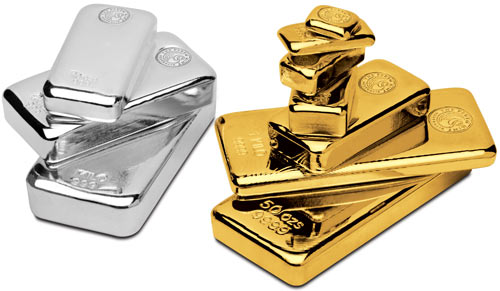Our vacation airline tickets in September were funded by accumulated miles on our Alaska Airlines credit card. While on vacation this summer, my brother-in-law graciously hosted eight of us for dinner. He tried to downplay the generous hospitality by saying he had just gotten his “cash back” award from his credit card company. The “cash back” credit card had accumulated a tidy sum of money, paying for a very nice dinner.
At home in Brookfield, a takeout restaurant advised a 3.5 percent surcharge if paying by credit or debit card. Shopping later, our favorite farm market added a dollar to all card transactions. It is not unusual in Brookfield to see two prices for gas: one price is for cash, and the slightly higher gallon cost is for credit. These actions offset the cost of interchange fees, the costs from the processing bank. These rates vary up to 3.25 percent.
The cost of processing a credit transaction is deducted most often from the seller’s payment. A credit card with a cash back or airline mileage benefit requires funding. The merchant bank manager deducts the premium cost from the credit to the seller.
Popular credit card hosting sites, such as Visa and Mastercard, account for 84 percent of general purpose credit cards and have leverage over stores and restaurants for their use. Conversely, food truck vendors are happy to pay the fees since they need not carry cash or waste time at a cash register. Covid-19 prevention measures were believed to be enhanced by plastic taps rather than exchanging paper. Credit at the pump is convenient.
The premium benefits also appear in retailer credit cards. Amazon credit card payments create points that translate to cash. Other discrete credit cards offer deals, sales, or bonus bucks, such as Eddie Bauer or Nordstrom through Comenity Capital Bank. All rewards have at their center an offer accepted by the consumer. Buy-now-pay-later offers may be issued at the point of purchase by the retailer if you cannot pay for that new snowblower at Home Depot, but these sales are not tracked by the government.
As a card holder you may have received offers to consolidate your debt, transferring your existing balance(s) for a period of interest-free credit. At the end of the suspension period a new interest rate is calculated. Each offer usually comes with a reward premium to induce your application for their new credit card. The premiums vary, as does the range of interest rates and ancillary charges. Between 2015 and 2019, average purchase volume increased the most for miles and other types of rewards. Purchase volume on cards with no rewards grew the least during this period, while 47 percent of customers who switched credit cards did so for better premium rewards.
The most common premiums are cash back up to 3 percent (for a nice family dinner), bonus points from merchants, and air miles for vacation travel to maybe Seattle.
All the premium offers share a common default interest rate of 29.99 percent if a payment is late. On average, late, interchange, and other fees total 16 percent of a bank’s profitability. Banks have or soon will raise charges for overdraft fees.
The Wall Street Reform and Consumer Protection Act, commonly referred to as Dodd-Frank, was enacted on July 21, 2010. If Dodd-Frank was designed to befuddle the economy, it was successful. Senator Elizabeth Warren was the chief advocate of this bill, so named to whitewash reputations of legislators who behaved badly in the home mortgage meltdown of 2008. The Durbin Amendment appeared in this confusion to limit fees for debit card swipes (interchange processing fees).
At the time of passage of this 848-page monstrosity, containing 243 new rules, many parts remained unwritten. There was difficulty determining how to implement the bill in financial institutions other than banks. It was rolled back by then President Donald Trump in May of 2018.
The tarnished Dodd-Frank Act’s departure left intact the idea to control credit cards. That idea was reworked in 2022 creating a novel approach to protect consumers from credit card excesses by creating more competition. The effort found little traction. But Leviathan is patient, and no bad idea goes forgotten. It has grown into the Credit Card Competition Act of 2023 introduced by Senator Dick Durbin of Illinois. Like Dodd-Frank, the details and processes will be written by the Treasury once the bill is passed. “Pass the bill and we will see what is in it” is a tactic.
In 2015 the Richmond Fed studied interchange fees under the now rolled back Act and came to no conclusion on benefits to the consumer. In fact, the Richmond Fed discovered that banks raised minimum balances and fees on checking accounts to offset the debit card swipe, and 21 percent of merchants increased their prices.
Credit cards are a sprawling segment of the economy. There were fifty-six billion transactions in 2022 with an average interest cost of 19 percent and rising. Total quarter three 2023 credit card debt is $1.08 trillion.
The November 2023 Boston Fed analysis of excess savings shows the discord between two methods of calculating covid excess savings. In one method the savings are almost depleted, while in another $1.5 trillion remain. Consumer praxeology confirms the former through increased credit usage. Credit card debt will fluctuate but increase in 2024.
The credit card market is fluid, wide, and offers features to diverse market niches. It is a market that consumers have successfully navigated for their own benefit of meals, miles, and convenience. Some credit card users may be passive now, but marketing blitzes will increase consumers who use cards for benefits.
As currently constructed, the bill would allow the merchants or consumer to choose from a minimum of two banks to process the “swipe.” The bill assumes that competition would lower prices, and merchants would return the savings to customers. The size of merchant groups supporting this bill suggests more than just an eagerness to lower prices for consumers. A choice of a nonpremium card could increase the bank’s payment to the retailer, while reducing premium rewards for usage like cash back, airline miles, and points to the card holder.
Durbin’s proposal lacks self-awareness. Who created the higher interest rates? There is limited comprehension of how the bill’s mechanics would create disruptive changes when implemented. Functionally, the government has no insight into consumers’ praxeology. The failure of similar programs is ignored. Our government stands ready to regulate a $1 trillion microeconomic market with a proposal that is the equivalent of a wish list written with crayons on the short tables.
Spending continues, inflation continues, and the cost of credit increases on declining real wages. The Democratic Senate offers palliatives that sound earnest and responsive but do nothing for the street-level economy. Legislators who do not pump their own gas, who fly free, and who host events from lavish expense accounts are clueless as to how the market works. This is another bad idea on board the Ship of Fools that needs to be jettisoned.
Full story here Are you the author? Previous post See more for Next postTags: Featured,newsletter























